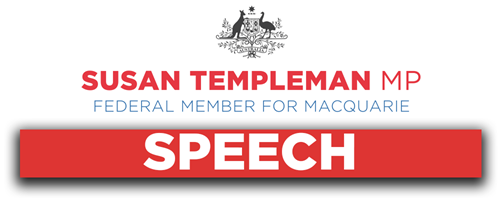
I'm going to take my next few minutes to talk about an inspiring program. Imagine a six-year-old who's never seen a violin, let alone held one, or a seven-year-old being given a cello to hold for the first time. I'm told it involves a lot of dropping. Fast forward less than a year and those same year 1 students are able to play in unison, bowing on the correct string thanks to an innovative music education program run by the Australian Chamber Orchestra. After three years these students can play more complex music in tune, reading the notes and knowing where their fingers go on the neck of the instrument. The ACO has been teaching students from St Marys North Public School over the last five years, putting into practice what the research around music education has shown for years.
The evaluation of the program, which is contained in this report, showed that kids who took part experienced a marked improvement not just in their musical skill but also in their cognitive and academic ability, including speaking, writing and mathematical reasoning. There was significant improvement in their emotional, physical and behavioural development, and in their school attendance and motivation, compared to children not involved in the foundation program.
Here is what Liam described about maintaining concentration: 'When we start a new piece of music we're like, "Oh, this is tricky," but I'm like, "Let's keep going," and it gets fun; I like a challenge.' Ally found safety and security in being part of a group and managing her anxiety in that way. As a violinist who is happy to play in a group but not as a soloist, I can understand that. She said: 'If I were to play by myself I'd be too nervous. When I play my cello with my friends it's good because if I do make a mistake, they won't really be able to hear it.'
This is a music program that helps kids do better in every way at school, and they get to understand the language of music and experience music making. Research tells us that, for the program to be effective, it needs to begin before the age of seven, offer sequential learning over at least two years, combine group and individual learning and be delivered by teachers who are appropriately supported and trained.
I believe every student in every school should have access to this sort of music education, not just because all kids deserve to experience the joy of making music but because it boosts their learning and development off the charts.


